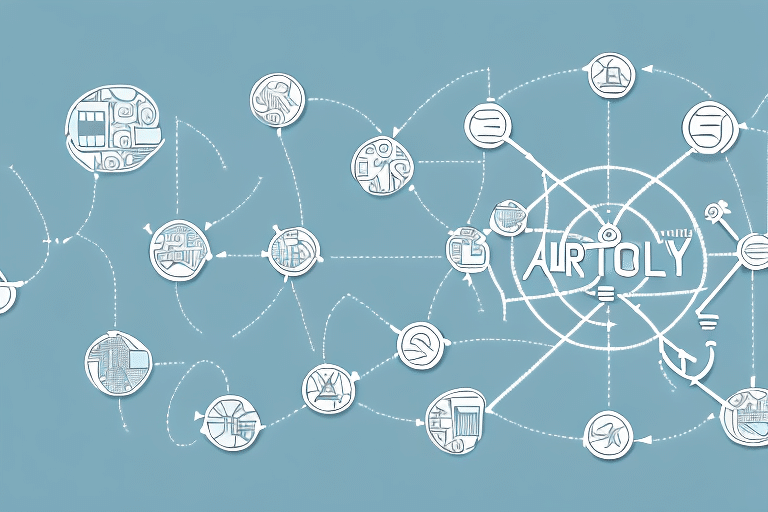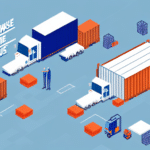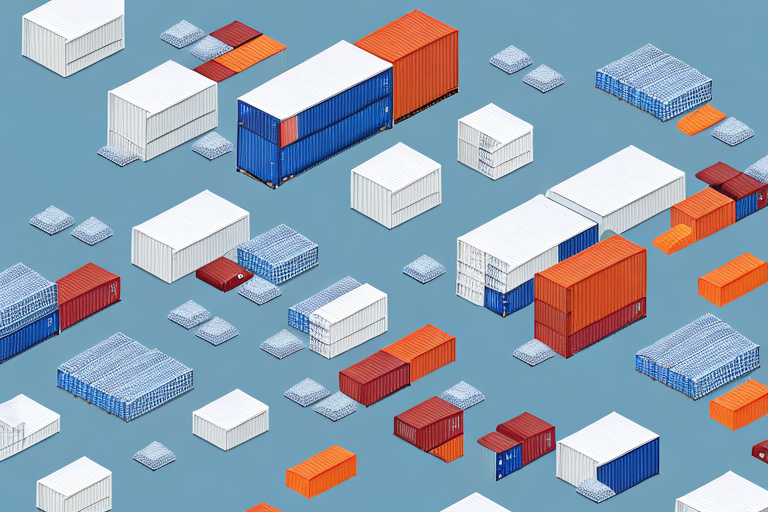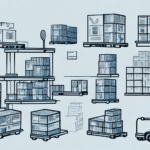Understanding the Importance of Forward Logistics
Forward logistics plays a crucial role in ensuring that products reach customers on time and in optimal condition. In today's competitive market, customers expect quick and reliable delivery, and any disruption in the logistics process can lead to delays, increased costs, and dissatisfied customers. According to a study by Inbound Logistics, efficient logistics management can reduce operational costs by up to 15% while enhancing customer satisfaction.
Optimizing forward logistics involves a clear understanding of customer demand. By leveraging customer data and market trends, businesses can better anticipate demand and adjust their logistics processes accordingly. This proactive approach can lead to optimized inventory levels, more efficient transportation routes, and improved order fulfillment processes, ultimately boosting profitability and customer loyalty.
Challenges in Forward Logistics and Strategies to Overcome Them
Supply Chain Management
Managing the supply chain effectively is one of the most significant challenges in forward logistics. Ensuring that goods are delivered efficiently requires a deep understanding of customer expectations, strong partnerships with suppliers and carriers, effective inventory management techniques, and the use of technology to track and manage shipments. Implementing a robust supply chain management system can help mitigate these challenges.
Cost of Transportation
Transportation costs can account for a significant portion of total logistics expenses. To manage these costs, businesses can explore different transportation options, negotiate better rates with carriers, and optimize shipping routes. Utilizing a transportation management system (TMS) can provide real-time data to make informed decisions that reduce costs.
Sustainability and Environmental Impact
With increasing awareness of environmental issues, businesses are under pressure to minimize their carbon footprint. Sustainable practices such as using eco-friendly packaging materials, optimizing transportation routes to reduce emissions, and partnering with suppliers committed to sustainability are essential. According to the GreenBiz, sustainable logistics can not only reduce environmental impact but also enhance brand reputation.
Key Elements of a Successful Forward Logistics Process
- Effective demand forecasting and inventory management to ensure the right products are available when needed.
- A reliable transportation network that can move products efficiently and cost-effectively.
- An efficient warehouse that can process and manage goods quickly and accurately.
- Strong relationships with carriers and suppliers to provide timely and affordable services.
- Utilization of technology to track, manage, and provide real-time updates on shipments and inventory levels.
- Flexibility to adapt to changing market conditions and customer demands.
Additionally, effective communication and collaboration among all parties in the supply chain—including manufacturers, distributors, retailers, and logistics providers—are vital. Sharing information and working collaboratively can ensure timely deliveries and maintain product quality, thereby reducing delays and enhancing customer satisfaction.
Role of Technology in Streamlining Forward Logistics
Technology is a cornerstone in modernizing forward logistics. Tools such as Warehouse Management Systems (WMS), Transportation Management Systems (TMS), and Electronic Data Interchange (EDI) play a pivotal role in enhancing accuracy, reducing costs, and streamlining logistics processes. According to Supply Chain Digital, implementing advanced technology solutions can lead to a 20% increase in operational efficiency.
Automation and real-time tracking are particularly impactful, allowing businesses to monitor shipments continuously, predict potential delays, and make data-driven decisions to optimize routes and inventory levels.
Collaborating with Suppliers and Carriers
Strong relationships with suppliers and carriers are essential for smooth and efficient logistics operations. Collaboration ensures timely and cost-effective delivery of products and enhances the accuracy of demand forecasting. Building trust and maintaining open communication channels with partners enable quick responses to issues and unforeseen events, such as supply chain disruptions or sudden changes in demand.
Implementing collaborative planning, forecasting, and replenishment (CPFR) strategies can further strengthen these partnerships, leading to more synchronized and efficient logistics operations.
Evaluating Metrics and Continuous Improvement
Monitoring key performance indicators (KPIs) and metrics is crucial for assessing the effectiveness of forward logistics processes. Common KPIs include on-time delivery rate, order cycle time, inventory turnover, and transportation cost per unit. Regular evaluation of these metrics helps identify areas for improvement and track progress over time.
Adopting a culture of continuous improvement, supported by methodologies such as Lean and Six Sigma, can drive ongoing enhancements in logistics operations. According to Six Sigma Daily, businesses that focus on continuous improvement can achieve significant gains in efficiency and cost savings.
Future Trends in Forward Logistics
- Automation and Robotics: Increased use of automation in warehouses to accelerate processing and reduce human error.
- Sustainability: Growing emphasis on environmentally-friendly logistics practices to meet regulatory requirements and consumer expectations.
- E-commerce Growth: The rise of e-commerce demands faster and more efficient last-mile delivery solutions.
- Big Data and Analytics: Enhanced use of big data to predict demand, optimize routes, and improve overall logistics efficiency.
Staying abreast of these trends is essential for businesses aiming to maintain a competitive edge in forward logistics.
Case Studies: Successful Streamlined Forward Logistics
Numerous companies have successfully streamlined their forward logistics processes, reaping significant benefits in efficiency and customer satisfaction. For instance, Amazon employs a highly automated logistics system that enables rapid and cost-effective delivery of products. Their use of robotics in fulfillment centers and advanced algorithms for route optimization sets industry standards.
Toyota is another exemplary case, having implemented lean principles across their supply chain. This approach has led to reduced waste, improved efficiency, and lower operational costs, reinforcing Toyota's reputation for quality and reliability.
Conclusion: The Crucial Role of Streamlined Forward Logistics in Business Success
A streamlined forward logistics process is indispensable for business success in today's competitive landscape. By understanding the importance of forward logistics, addressing challenges with effective strategies, and implementing key elements of a successful process, businesses can enhance efficiency, reduce costs, and deliver superior service to customers. Embracing technology, fostering strong partnerships, and continuously monitoring performance metrics are essential steps toward achieving long-term success and maintaining a competitive advantage.






















